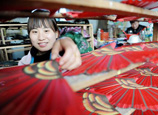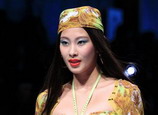
Common language
Doudou establishes a milestone in the overseas market for Chinese TV dramas by making a good beginning in Africa because Southeast Asia and Chinese communities across the globe are usually the main consumer of Chinese TV series.
People cannot help asking why Doudou could be a success in Africa, which is so different from China culturally. "Even though China and Tanzania have gaps in culture, they have much in common in the relationships and confrontations between mother-in-law and daughter-in-law. So it can strike a chord among the Tanzania audience," Lugalabamu once told the media.
Kapchanga told the Global Times that the show gives a true reflection in an evermore capitalistic Kenya that wealth is not everything in life. "More importantly, it depicts the real and universal challenges marriages undergo here in Kenya and Africa in general, where relatives (not just the nuclear family members) tend to act as intruders."
In traditional African families, men are still the core of the family with wives clinging to them. But today, more and more women in Africa have begun to pursue independence and freedom, and they want to play a more important role in the family. This generational difference tends to initiate confrontations between mother-in-law and daughter-in-law.
"The situation is more complicated for Muslim families where a man can have several wives," said Liu Dong, the cultural secretary at the Chinese embassy in Tanzania who helped introduce the drama.
Besides the sympathy about family life, many locals also find practical significance in the drama. As reported, some Kenyan audiences find it helpful when communicating with Chinese. According to Kapchanga, people in Kenya generally watch Chinese dramas because they want to be informed, get to know more about China and the culture of its people.


















 Homemade submarine, deep pockets | Also See: Incredible inventions by Chinese
Homemade submarine, deep pockets | Also See: Incredible inventions by Chinese


![]()
